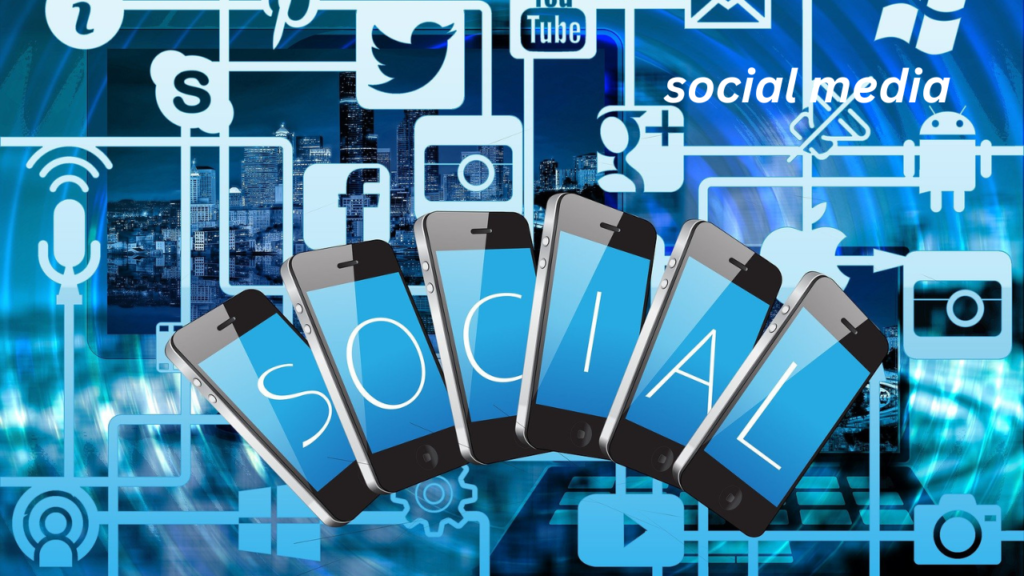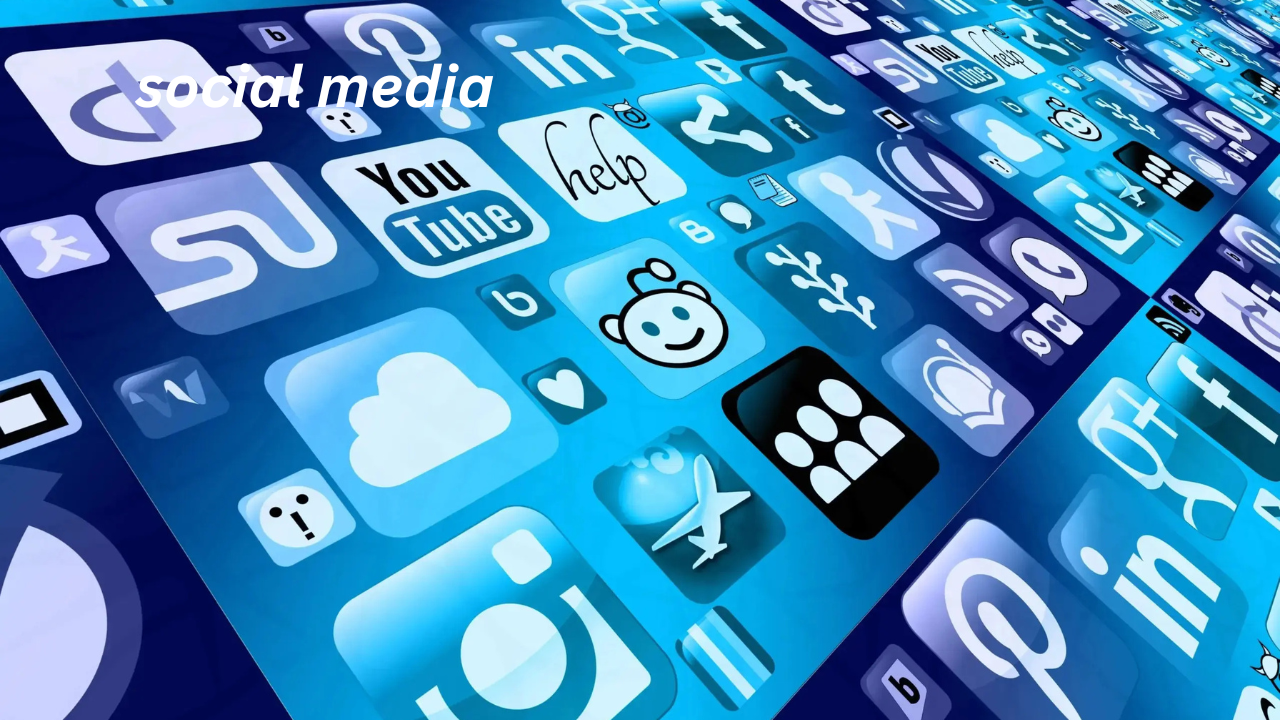Social media has evolved from a niche internet pastime to a dominant force that influences how we communicate, do business, and even perceive reality. What once started as a way to connect with friends online has transformed into a global social media ecosystem encompassing billions of users across diverse platforms. In today’s digitally-driven age, understanding the nuances of socialo media is no longer optional—it’s essential.
This article explores the journey of social media from its humble beginnings to its current role in society, culture, and the global economy. We’ll delve into the impact it has had—both positive and negative—on our daily lives and mental health, how it has empowered businesses and creators, and where it’s headed in the future. Whether you’re a casual user, a marketer, or a curious observer, this comprehensive guide will equip you with a deeper understanding of the digital pulse that keeps the world connected.
The Evolution of Social Media From Chatrooms to Global Empires
The roots of social media can be traced back to the early days of the internet, where online forums, bulletin board systems (BBS), and chatrooms offered users the first taste of virtual interaction. Platforms like Six Degrees and Friendster emerged in the late ’90s and early 2000s, laying the foundation for what would become a digital revolution. MySpace, with its customizable profiles and music integration, became the first platform to reach mass popularity, but it was soon eclipsed by Facebook, which introduced a more streamlined and real-name-based approach to networking.
As smartphones became ubiquitous, social media shifted into our pockets. Platforms like Instagram and Snapchat redefined visual communication, while Twitter (now X) became a microblogging powerhouse. LinkedIn carved a niche for professionals, and TikTok brought short-form, algorithm-driven content to the forefront of digital consumption. The rise of mobile technology and high-speed internet accelerated this growth, making social media an integral part of our daily routines.
Each of these platforms contributed to shaping the social media landscape we know today. With over 4.8 billion users worldwide, social media has evolved from simple connection tools to complex ecosystems where news spreads, brands thrive, and culture is born. Its rapid growth reflects not only technological advancement but also a deep-rooted human desire to connect and share.
How Social Media Influences Society and Culture
Social media has fundamentally altered the way people communicate and express themselves. From emojis to memes, the digital language of social platforms has created new forms of expression that transcend geographic and linguistic boundaries. Users can now connect with strangers across the globe, find communities based on shared interests, and share their stories in real-time. This democratization of communication has empowered individuals and amplified voices that were once marginalized.
One of the most profound impacts of social media is its role in shaping modern relationships. Dating apps like Tinder and Bumble have revolutionized romance, while platforms like Facebook and Instagram have changed how we maintain friendships and family bonds. Social media has made it easier to stay in touch but has also introduced challenges like comparison culture and digital burnout.
On a broader cultural level, social media has been instrumental in catalyzing global movements. Hashtags like #BlackLivesMatter and #MeToo have unified millions in collective activism, challenging social norms and pushing for justice. It has also played a pivotal role in political uprisings, notably during the Arab Spring, where platforms like Twitter acted as tools for organizing and spreading information.
At its core, social media reflects and amplifies cultural shifts. It doesn’t just follow trends—it creates them. Whether through viral dances, influencer aesthetics, or digital slang, social media is continually redefining what it means to be part of a global community.
The Business of Social Media Marketing Monetization and the Creator Economy

Social media is not just a communication tool—it’s a massive economic engine. Businesses of all sizes have embraced platforms like Instagram, Facebook, LinkedIn, and TikTok to reach their audiences, build brand awareness, and drive sales. Social media marketing leverages tools like sponsored posts, influencer partnerships, and paid advertising to target specific demographics with pinpoint precision. With detailed analytics and customizable campaigns, businesses can optimize their ROI more efficiently than with traditional advertising.
The rise of the creator economy has opened new monetization avenues for individuals. Influencers—ranging from global celebrities to niche content creators—now build personal brands and monetize their reach through sponsored content, affiliate marketing, merchandise, and digital products. Platforms like YouTube, TikTok, and Substack even offer revenue-sharing models, giving creators a stake in their content’s success.
E-commerce integration is another game-changer. Features like Instagram Shopping and Facebook Marketplace allow businesses to sell directly within the app, creating a seamless user experience. Brands can engage followers with behind-the-scenes content, livestream product demos, and receive instant feedback.
This fusion of content and commerce has blurred the lines between entertainment, information, and advertisement. Social media has become a central pillar in digital marketing strategy, influencing everything from consumer behavior to global brand positioning.
The Dark Side Misinformation Mental Health and Digital Addiction
While social media offers connection and creativity, it also harbors serious drawbacks. One of the most pressing issues is the spread of misinformation. With algorithms designed to prioritize engagement, sensational content often goes viral, regardless of its accuracy. This has led to the proliferation of fake news, conspiracy theories, and divisive content that can sway public opinion and polarize societies.
Mental health experts have raised concerns about the impact of social media on psychological well-being. Constant exposure to curated lifestyles can foster feelings of inadequacy, anxiety, and depression—particularly among teens and young adults. The endless scroll of highlight reels creates unrealistic expectations, making it difficult to distinguish between authenticity and illusion.
Cyberbullying, online harassment, and toxic comment sections further contribute to digital stress. Victims often feel powerless, especially on platforms that struggle with effective content moderation. Meanwhile, social media addiction is increasingly common, as platforms are engineered to capture and retain user attention. Notifications, likes, and shares tap into the brain’s reward system, making it hard to unplug.
Addressing these challenges requires a multi-faceted approach, including platform accountability, user education, and mental health advocacy. Awareness is the first step toward healthier social media habits and a more ethical digital landscape.
he Future of Social Media Trends Innovation and Ethical Challenges
The next era of social media will be shaped by emerging technologies and shifting societal expectations. Augmented reality (AR), virtual reality (VR), and the metaverse promise to create immersive digital experiences where users can socialize, work, and play in shared virtual spaces. Meta (formerly Facebook), Apple, and other tech giants are investing heavily in building these ecosystems.
Artificial Intelligence (AI) is also transforming content creation. From generative AI tools that produce videos and images to smart algorithms that personalize content feeds, the future of social media will be increasingly automated. This raises questions about authenticity, data ethics, and creative ownership.
Decentralized platforms powered by blockchain technology offer alternatives to the centralized control of mainstream platforms. These networks emphasize privacy, data ownership, and freedom from censorship, but they also come with risks like unmoderated content and scalability issues.
Ethical concerns will continue to dominate the conversation. Governments and tech companies are under pressure to enforce transparency, protect user data, and combat harmful content without infringing on freedom of expression. Users, too, are becoming more aware of their digital footprints and are demanding more control over their online lives.
As the digital landscape evolves, the future of social media will depend on balancing innovation with responsibility—ensuring that technology serves humanity rather than the other way around.
Conclusion
Social media has undeniably become one of the most influential forces in the modern world. It has transformed communication, commerce, culture, and even consciousness. While its benefits are vast—ranging from connectivity to creativity—it also presents serious challenges that cannot be ignored.
By understanding how social media operates, recognizing its influence, and engaging with it mindfully, we can harness its power for good. Whether you’re a creator, consumer, or critic, your role in the digital landscape matters. The future of social media isn’t just being written by tech companies—it’s being shaped by the users who interact with it every day.
FAQs
What is the most popular social media platform in 2025?
TikTok continues to lead among younger audiences, while Facebook and Instagram maintain strong global user bases.
How does social media affect mental health?
It can lead to anxiety, depression, and self-esteem issues, particularly due to comparison culture and cyberbullying.
Can social media influence elections and public opinion?
Yes, it plays a significant role in shaping public discourse and has been linked to election interference and misinformation.
Is social media marketing effective for small businesses?
Absolutely. With targeted ads and direct engagement, small businesses can grow brand awareness and boost sales affordably.
What are the risks of sharing personal information online?
Risks include identity theft, stalking, and data breaches. Always adjust privacy settings and avoid oversharing.
You May Also Read: https://ventsworlds.com/rentspree/

